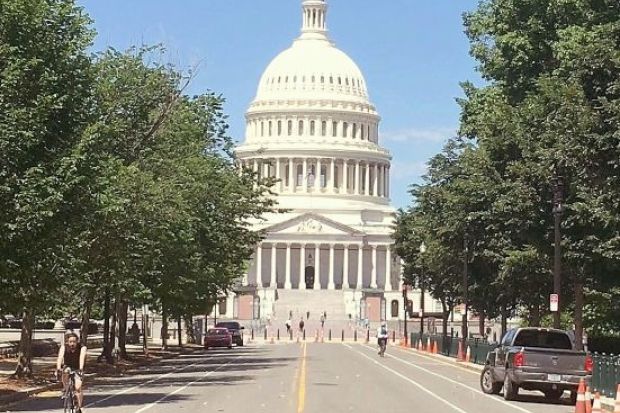US president Joe Biden has signed into law a fiscal year 2022 federal budget that boosts a range of aid programmes for low-income college students while modestly raising research spending.
The long-delayed $1.5 trillion (£1.1 trillion) spending bill, for the fiscal year that began last October, includes a total of $3 billion for higher education.
Its provisions include an increase of $400 – a little more than 6 per cent – to $6,895, in the maximum value of the Pell Grant, the major federal subsidy for low-income college students.
It’s the largest increase for several years, though below the doubling that Mr Biden promised during the 2020 presidential campaign.
The bill also increases aid to minority-serving colleges and universities, by 12 per cent, to $885 million.
The new federal budget, negotiated in the Democrat-controlled Congress, also provides an overall increase of about 5 per cent for the government’s various research funding agencies.
Those amounts include gains of 5 per cent to $45 billion for the National Institutes of Health, 4 per cent to nearly $9 billion for the National Science Foundation, and 6 per cent to $7.5 billion for the Department of Energy’s Office of Science.
The bill brought the NSF its much-debated new division focused on finding commercial applications of research discoveries, though without any specific share of the NSF budget dedicated to it. The idea has raised hopes of bringing new appreciation of government-funded basic research, along with fears that the division might take money and attention from the NSF’s mission to generate those discoveries.
The budget also includes $1.5 billion for thousands of “earmarks” – including more than 200 for higher education, largely in science-related fields – in the revival by Congress of its long-banned practice of letting individual lawmakers specify money for projects in their own districts.
The biggest earmark benefiting academia is a $76 million commitment for the University of Alabama at Birmingham to build a new biomedical research building. The University of Alabama at Tuscaloosa and Missouri State University also received $50 million apiece, for faculty recruitment and facility renovations boosting their work in science and engineering.
The bill also requires the federal creation of online survey tool, with mandatory participation by institutions, designed to measure the experiences of college students with sexual harassment and assault.




